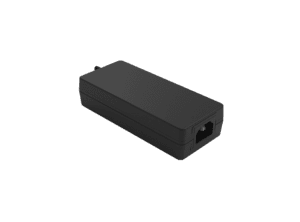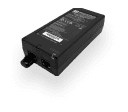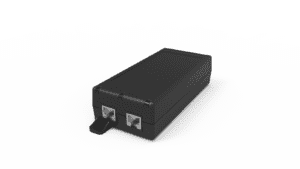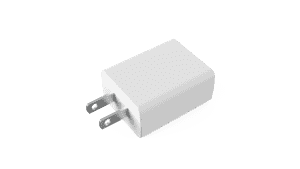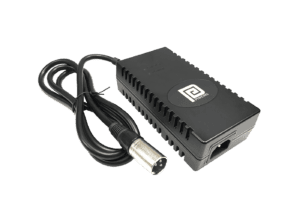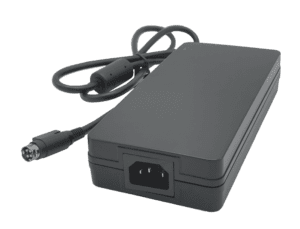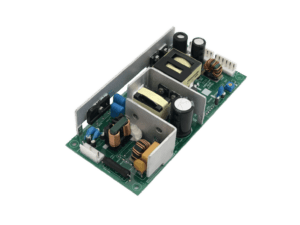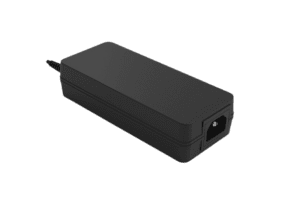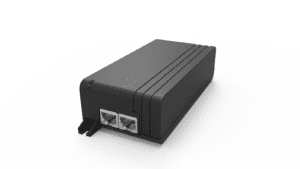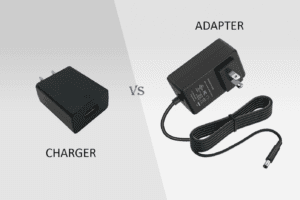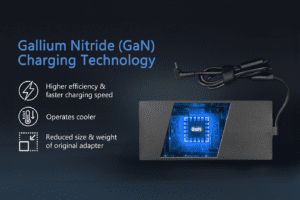BLOG
Smart EV Charging Infrastructure for Commercial Properties: How OEMs Can Build Scalable, Network-Ready Solutions
Table of contents

What Is Smart EV Charging Infrastructure and Why Is It Essential for Commercial Properties?
As electric vehicle (EV) adoption grows, commercial property owners—from office parks to mixed-use developments—are under pressure to offer EV charging as a built-in amenity. But basic charging stations aren’t enough. What’s needed is smart EV charging infrastructure: systems that are networked, data-driven, and scalable to meet dynamic user demands.
Smart EV chargers connect to cloud-based platforms for real-time monitoring, usage analytics, remote diagnostics, and energy load balancing. They support standards like OCPP 1.6/2.0, integrate with building management systems (BMS), and are future-ready for evolving fleet or tenant needs. For OEMs manufacturing these systems, the challenge is designing hardware that can deliver flexibility, performance, and network security in one package.
Top Features
- OCPP Compatibility: Enables communication with third-party network platforms
- Dynamic Load Balancing: Distributes energy use intelligently across chargers to reduce peak demand charges
- Remote Access & Diagnostics: Allows operators to monitor health, usage, and issue firmware updates
Top Benefits
- Enables revenue generation through billing and smart access controls
- Supports multiple tenants or user groups across mixed-use properties
- Reduces operational and maintenance costs through automation
Best Practices
- Design chargers with modular software interfaces to integrate with any backend
- Ensure cybersecurity compliance (e.g., ISO 15118, encrypted APIs)
- Incorporate RFID, QR, or app-based access control options
Smart EV charging isn’t just a technology upgrade—it’s now an expectation in modern commercial infrastructure.
How OCPP Compliance Supports Flexibility and Fleet Management
The Open Charge Point Protocol (OCPP) is the backbone of smart charger interoperability. For OEMs, building OCPP-compliant hardware ensures that the charger can communicate with any backend service provider—giving property owners or fleet managers the freedom to choose how they operate and monetize their charging infrastructure.
Supporting OCPP 1.6 and 2.0.1 allows for advanced features like smart scheduling, dynamic pricing, load shedding, and remote updates. It also creates a competitive advantage for OEMs that want to offer future-ready products to developers, campuses, or commercial fleets.
Top Features
- Two-Way Communication: Sends status, receives commands, and logs transaction data to cloud systems
- Plug-and-Play Platform Flexibility: Compatible with leading charging networks and fleet management systems
- Smart Billing Integration: Tracks usage and supports revenue-sharing business models
Top Benefits
- Reduces lock-in risk for commercial operators
- Increases resale value of charging infrastructure to new property tenants
- Simplifies fleet integration and scaling
Best Practices
- Implement certified OCPP stacks with regular updates
- Test backward compatibility for legacy devices
- Include provisions for white-label customization of UI and network interfaces
OCPP compliance transforms a charging station from a utility outlet into a connected business asset.
How to Design Scalable EV Charging Solutions for Multi-Tenant or Multi-Unit Properties
Commercial properties often serve multiple tenants or user groups, each with their own access needs and usage patterns. For OEMs, this means building hardware and software systems that scale—without requiring complete overhauls as property demands grow.
Scalable EV charging design supports modular expansion, centralized load management, and role-based user access. It should also accommodate variations in parking layout, power availability, and networking conditions. Chargers must be flexible enough to grow from a few stations to dozens without degrading performance or creating billing conflicts.
Top Features
- Modular Hardware Designs: Allows adding more ports or units without costly infrastructure changes
- Access Control Systems: Supports RFID, mobile apps, PIN codes, or user groups
- Network Mesh Options: Ethernet, Wi-Fi, or LTE fallback for connectivity in diverse environments
Top Benefits
- Simplifies phased deployment across property portfolios
- Reduces installation labor and upgrade downtime
- Enables property managers to offer tiered pricing or usage plans
Best Practices
- Offer hardware that supports load balancing across multiple stations
- Design enclosures and cabling to accommodate tight or retrofit installations
- Build firmware that can support over-the-air upgrades to avoid on-site service
Scalable designs empower commercial properties to grow charging infrastructure alongside tenant demand, without introducing operational complexity.
CLIENT'S QUOTE
"Phihong’s PoE solutions have made a huge difference for us! Our network runs more efficiently, and we’ve seen real cost savings. We couldn’t be happier!"
What Role Does Load Management Play in Commercial EV Charger Manufacturing?
As EV adoption increases, the strain on electrical infrastructure becomes a real concern for commercial properties. Smart load management is the solution—and for OEMs, it’s a key differentiator in designing commercial-ready EV chargers.
Load management enables multiple chargers to share a limited power source without tripping breakers or incurring peak demand fees. Through dynamic allocation, charging stations intelligently distribute available power based on real-time usage, priority levels, or scheduled loads. This feature is critical for properties that want to scale charging without major electrical upgrades.
Top Features
- Static and Dynamic Load Balancing: Distributes power based on current system demand and availability
- Priority Charging Modes: Allows fleet or VIP vehicles to charge faster during limited capacity
- Energy Monitoring Integration: Syncs with building energy management systems (EMS or BMS)
Top Benefits
- Reduces capital expenditure on infrastructure upgrades
- Enables safe operation of multiple chargers under one panel
- Prevents energy waste and controls long-term electricity costs
Best Practices
- Embed smart relays and sensors into charger hardware for real-time control
- Ensure compatibility with utility demand response programs
- Provide building owners with a dashboard for load planning and reporting
Effective load management isn’t just a software feature—it’s a hardware and firmware strategy that OEMs must engineer from the ground up.
How to Support Custom Branding and Tenant Access Control
For commercial properties, EV chargers aren’t just utility tools—they’re customer-facing assets. Developers and property managers often want EVSE (electric vehicle supply equipment) that reflects their branding, tenant experience, and security needs.
OEMs that can deliver custom-branded enclosures, configurable UIs, and robust access control stand out in a crowded market. Whether it’s branded mobile apps, RFID badge compatibility, or tiered user privileges, these features are becoming essential for workplace charging, retail centers, or residential complexes.
Top Features
- Custom Branding and Color Schemes: Options for logos, paint, and kiosk wrapping
- User Access Management: Role-based access, guest charging, or monthly accounts
- Payment Integration: Connects with mobile apps, RFID, QR codes, or open-loop POS systems
Top Benefits
- Strengthens brand recognition and customer experience
- Prevents unauthorized usage or grid overload
- Supports monetization through public or semi-private usage models
Best Practices
- Offer OEM-ready customization kits or brand guidelines during procurement
- Include admin dashboards for tenant and access control
- Provide options for API integration with parking systems or security gates
Customization is no longer optional—it’s a B2B expectation in commercial EV charging.
How Phihong USA Helps OEMs Build Smart, Network-Ready EV Charging Solutions
Phihong USA, through its EVSE division Zerova Technologies, helps OEMs manufacture scalable, UL-compliant, and smart-enabled EV charging systems designed specifically for commercial property environments.
With deep expertise in power electronics, thermal design, and smart charging protocols, Phihong supports your product from concept to certification. Whether you’re building for office campuses, apartment complexes, shopping centers, or fleet depots, our modular hardware platforms and OCPP-ready firmware are tailored for growth.
Phihong offers:
- Customizable Level 2 chargers with UL 2594 and OCPP 1.6/2.0 support
- Load-balancing solutions for multi-station commercial deployments
- White-labeled enclosures, software, and network integration
- In-house testing for thermal, EMI, and compliance performance
- Production-ready support for global rollouts or pilot deployments
Whether you’re an established EVSE brand or an OEM entering the EV infrastructure space, Phihong is your partner in building intelligent, future-proof charging stations.
Explore our smart charging solutions today.
Visit www.phihong.com or contact sales@phihongusa.com to schedule a free consultation.

Contact Our Team Today!
Our dedicated sales team and international partners are prepared to support you with your latest projects and initiatives globally.
Explore More with Phihong USA
As we conclude our exploration of PoE technology, it’s evident how these innovations are streamlining power and data integration across various industries. Phihong USA stands at the forefront of this technological advancement, offering a diverse range of power solutions designed to meet the evolving needs of modern industries.
Phihong USA’s extensive product lineup includes:
- Power over Ethernet (PoE) Solutions: Delivering reliable power and data transmission over a single cable, ideal for simplifying network installations and reducing costs.
- AC/DC Adapters and Power Supplies: From compact adapters to industrial-grade power supplies, Phihong provides solutions that ensure efficiency and reliability in various applications.
- Battery Chargers: Customizable chargers for lithium-ion and lead-acid batteries, supporting a wide range of power requirements for mobility and industrial applications.
- Medical Power Supplies: Specialized power solutions designed to meet the stringent requirements of the healthcare industry, ensuring safety and reliability.
Phihong USA is committed to innovation and excellence, continually developing products that meet the highest standards of performance and reliability. Their global reach and dedication to customer support make them a trusted partner in powering the future.
Here are some useful links to explore Phihong USA’s offerings further and bring in new potential clients:
Visit Phihong USA to discover how their advanced power solutions can support your business needs. Whether you’re looking to upgrade your network, or find reliable power supplies, Phihong USA has you covered.
By choosing Phihong USA, you’re partnering with a leader in power technology, ensuring your operations run smoothly and efficiently with top-tier power solutions. Contact Us today!
FAQ
What makes EV chargers “smart” and how do they benefit commercial properties?
A smart EV charger is one that includes network connectivity and communication protocols (typically via OCPP), allowing it to interact with backend platforms, building systems, and utility services. Smart features include:
- Remote monitoring and diagnostics
- Scheduled or dynamic load management
- User authentication and access control
- Payment processing and usage analytics
For commercial properties, these capabilities offer more than convenience—they provide cost control, operational insight, and revenue opportunities. Smart chargers enable properties to support multiple tenants, bill for usage, integrate with green energy programs, and avoid costly demand charges.
What is OCPP and why should OEMs build it into their EV chargers?
OCPP (Open Charge Point Protocol) is an open-source communication standard that allows EV chargers to talk to various backend platforms. It’s essential for interoperability and long-term scalability. By building OCPP into their chargers, OEMs enable customers to:
- Choose from multiple charging networks or backend software providers
- Control chargers remotely and receive firmware updates
- Perform diagnostics and usage reporting from any compliant platform
Supporting OCPP 1.6 or 2.0.1 ensures that a charger is not locked into a single ecosystem, increasing its value for commercial property owners who may want to switch or scale their network.
How does load balancing help reduce costs for commercial EV charging infrastructure?
Load balancing allows multiple EV chargers to share a limited power supply without exceeding capacity or requiring major infrastructure upgrades. It ensures that power is distributed dynamically across stations based on demand and system limitations.
Benefits of load balancing include:
- Lower upfront costs by avoiding transformer or panel upgrades
- Reduced electricity bills by preventing peak demand spikes
- More predictable operation during high-usage periods
OEMs can integrate smart relays, sensors, and communication modules that enable load balancing features to be controlled locally or via the cloud—adding tremendous value to commercial installations.
What are the most important features for EV chargers used in commercial or multi-tenant properties?
EV chargers in commercial properties need to go beyond basic functionality. Key features include:
- Smart access control: RFID, PIN, or app-based user authentication
- Revenue generation tools: Payment processing and usage billing
- Network connectivity: Wi-Fi, Ethernet, or cellular options for reliability
- Branding and customization: Visual design and UI tailored to the property owner
- Durability: Outdoor-rated (NEMA 3R/4) with industrial-grade connectors and cable management
OEMs should build chargers with these capabilities to meet the expectations of property developers, tenants, and EV-driving employees or customers.
How does Phihong USA support OEMs building EV chargers for commercial properties?
Phihong USA, along with its EVSE brand Zerova Technologies, offers complete development and manufacturing support for OEMs entering the commercial EV charging market. From concept to certification, Phihong provides:
- OCPP 1.6/2.0-compliant smart charger platforms
- Load balancing and network-ready firmware
- Custom enclosures and branding support
- Thermal and EMI engineering for high-uptime environments
- Global supply chain and fulfillment coordination
Whether you’re launching a pilot at a corporate campus or deploying hundreds of units across a commercial real estate portfolio, Phihong’s team brings the hardware, technical expertise, and regulatory knowledge to scale your solution with confidence.
Start your smart charging project at www.phihong.com or reach out to sales@phihongusa.com.

